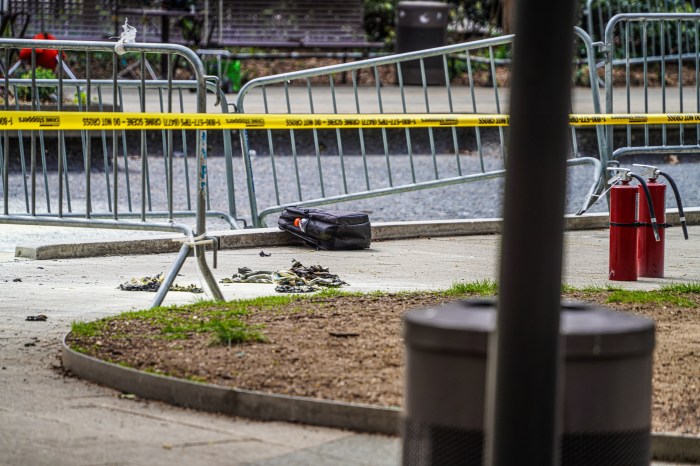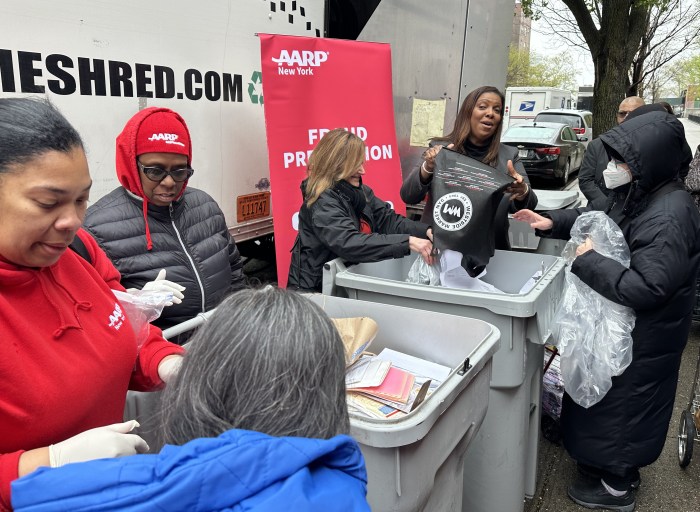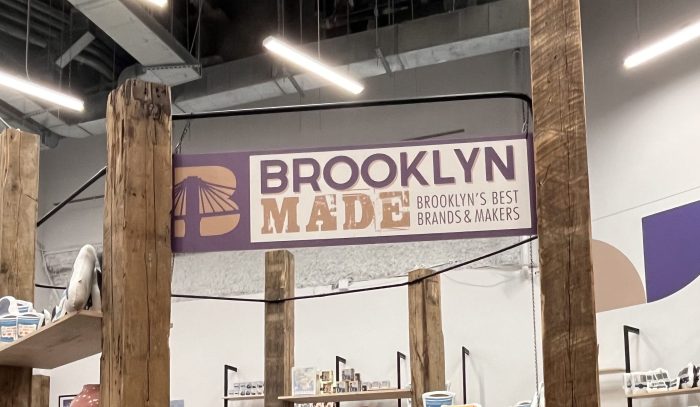
The NYPD and the Brooklyn borough president want you to know that K2 is a bad trip.
Just hours after Eric Adams passed out flyers warning of the dangers of synthetic marijuana on a Bed-Stuy street corner Wednesday, police and the city Sheriff’s Department simultaneously inspected five convenience stores in the area, including the one many in the neighborhood say is the principal seller of the cheap high.
The drug swept through the neighborhood the day before, sending 33 people to the hospital with apparent overdoses.
“We want to stop it at its source,” Adams said, adding he doesn’t want to just push the drugs elsewhere. “We want to find out where it’s manufactured, who’s delivering it, and how it’s making its way into our communities. That’s a thorough, intensive investigation that must take place.”
Adams said he hopes to address the problem before it becomes as bad as the crack/cocaine epidemic. He compared the cost of getting high with K2, $5, to the price of crack.
“We are not going back to it,” he said. “We’re not going to drop the ball now with K2 and heroin finding a new foothold in our community, destroying entire generations.”
A total of three people were arrested on Wednesday for untaxed cigarettes during the inspections of five different stores, a joint effort by the Sheriff’s Department — which has the right to inspect any location that sells cigarettes — the NYPD, the Health Department and the Department of Consumer Affairs, police said.
No K2 was recovered during the inspections, police said, and the stores all remained open.
“We have to move at a more rapid pace to send a very strong message,” he said. “When you are participating in criminal behavior, you are weighing the cost of doing business over the cost of what you’re going to receive from your criminal enterprise.”
Not everyone was convinced that shutting down the stores that sell the cheap drug is going to necessarily help the people who use it.
“Somehow, some way it’s going to get to this corner because this is a very known corner,” said neighborhood resident Brian Arthur of Broadway and Myrtle Avenue.

















